Table of Contents
In the early hours of June 13, 2025, Israel carried out one of the most sweeping and aggressive military operations in its history, targeting more than 100 sites across at least 12 provinces in Iran, including the capital, Tehran, and the strategic northwestern city of Tabriz. This surprise campaign, named Operation Raising Lion, hit a range of targets—nuclear facilities, air defense systems, and the residences and offices of top Islamic Revolutionary Guard Corps (IRGC) commanders. Iranian media quickly confirmed the deaths of several high-ranking officials.
This bold move has shaken the geopolitical landscape, with many now fearing that the strikes might push Iran closer, not further, from building a nuclear bomb. While Israel claims it acted to prevent a nuclear Iran, the result may instead accelerate a regional arms race and prolonged conflict.

What Did Israel Hit—and Why?
Israeli Prime Minister Benjamin Netanyahu has repeatedly warned that Iran is nearing the technical threshold to assemble a nuclear weapon. Intelligence assessments in Tel Aviv suggested Tehran was just weeks away from acquiring the necessary components for weaponization. Although other global powers expressed skepticism over this timeline, Israel viewed the threat as imminent.
The targets included:
- Natanz nuclear enrichment facility—significant damage reported to centrifuge halls and uranium pipelines.
- Air defense installations—weakening Iran’s response capabilities.
- Command centers and homes of IRGC leaders—a clear signal to Tehran’s military elite.
Israeli officials stated their goals were twofold: to delay Iran’s nuclear program and to pressure Iran into accepting a new, more restrictive atomic agreement that would remove its stockpiled enriched uranium and limit enrichment activity on Iranian soil.
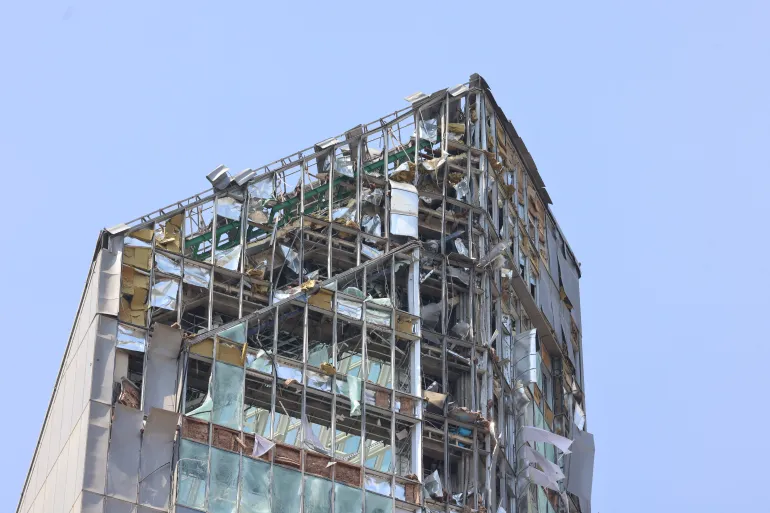
Iran’s Response: Retaliation and Resolve
Iran has called the attacks the most direct act of war in decades of hostilities between the two nations. The scale of destruction and the death of senior IRGC officials triggered immediate retaliatory drone strikes on Israeli territory. While many were intercepted, the symbolic and strategic message was loud and clear—Iran will not let this go unanswered.
Ayatollah Ali Khamenei, Iran’s Supreme Leader, now faces unprecedented domestic and international pressure. With hardliners demanding an aggressive response and the public mourning fallen generals, Khamenei must decide whether to escalate militarily or recalibrate through diplomacy. Early signs suggest Iran is preparing for a multi-layered retaliation, possibly across military, cyber, and political domains.
The Shadow of a Broader War
What makes this event uniquely dangerous is not just the military exchange but the broader implications for the region:
- Iran has hinted it may withdraw from the Treaty on the Non-Proliferation of Nuclear Weapons (NPT), which would eliminate the last formal check on its nuclear ambitions.
- There are growing rumors in Tehran that the fatwa (religious ban) issued by Khamenei prohibiting the development of nuclear weapons may be reconsidered, paving the way for an openly pursued nuclear deterrent.
- The IRGC has warned that U.S. bases in Bahrain, Qatar, the UAE, and even Jordan could become targets if the conflict expands.
Such a scenario would likely draw in U.S. forces, disrupt oil routes through the Strait of Hormuz, and destabilize global markets, already reacting nervously to the news. Oil prices have surged, and stock indices have dipped amid fears of prolonged warfare.
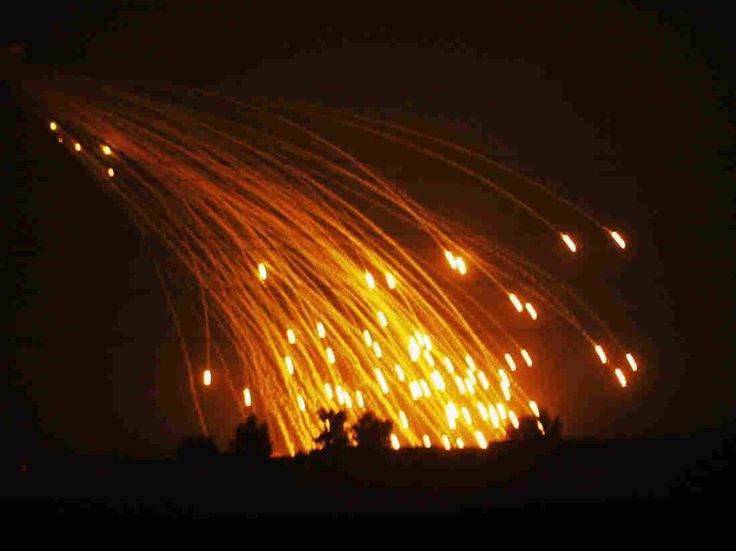
Diplomatic Fallout and Missed Opportunities
Until recently, indirect U.S.-Iran negotiations were underway through Omani mediation. These talks aimed to revive a version of the 2015 nuclear deal, focusing on limits to uranium enrichment and easing sanctions. However, talks broke down after Iran refused to stop enriching uranium on its own territory—a nonstarter for Tehran, which views enrichment as a sovereign right.
Sources close to the U.S. administration indicate that while Washington opposed full-scale war, it tacitly supported a limited Israeli strike, hoping it would tilt Iran back to the negotiating table. Weapons used in the operation, including bunker-busting bombs, were reportedly supplied by the U.S. during Trump’s earlier term.
Now, that gambit seems to have backfired. Rather than showing Iran its weakness, the attack may have triggered its resolve to accelerate its nuclear timeline and rally its proxies across the region.
What Comes Next?
In the coming days and weeks, we can expect:
- Continued drone and missile attacks by Iran or its allies.
- Possible cyberattacks on Israeli and Western infrastructure.
- Political announcements from Iran, potentially including withdrawal from the NPT or lifting the nuclear weapon ban.
- Heightened tension across the Gulf, with U.S. assets and oil shipping lanes on high alert.
Whether Israel’s mission was a strategic masterstroke or a catastrophic miscalculation remains to be seen. What is clear is that the Middle East stands at the brink of a prolonged, multi-dimensional conflict, one that could reshape regional alliances and global energy stability.
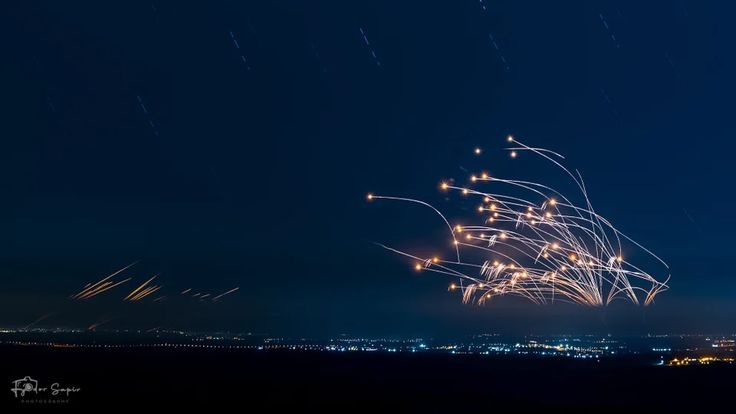
Final Thoughts
Israel may have intended to delay Iran’s nuclear ambitions—but in doing so, it may have given Tehran the final push toward pursuing them outright. As the dust settles over Tehran and Tel Aviv, world leaders must urgently seek diplomatic off-ramps. Otherwise, we may be witnessing the early days of a war that will define the next generation of Middle Eastern politics.
Stay informed with WorldAffairs.org, your window into global conflict, diplomacy, and the pursuit of peace.
Author Profile
- Syed Tahir Abbas is a Master's student at Southwest University, Chongqing, specializing in international relations and sustainable development. His research focuses on U.S.-China diplomacy, global geopolitics, and the role of education in shaping international policies. Syed has contributed to academic discussions on political dynamics, economic growth, and sustainable energy, aiming to offer fresh insights into global affairs.
Latest entries
 U.S. Foreign PolicyFebruary 2, 2026AI and Grand Strategy: The Case for Restraint – Navigating the Future of American Power
U.S. Foreign PolicyFebruary 2, 2026AI and Grand Strategy: The Case for Restraint – Navigating the Future of American Power National SecurityJanuary 31, 2026Treating China’s Connected Energy Systems as a National Security Risk
National SecurityJanuary 31, 2026Treating China’s Connected Energy Systems as a National Security Risk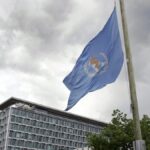 Global HealthJanuary 29, 2026The Future of the WHO—and How the United States Can Shape It
Global HealthJanuary 29, 2026The Future of the WHO—and How the United States Can Shape It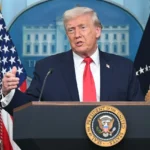 Global TradeJanuary 22, 2026Trump Cancels Tariffs on European Nations Over Greenland Pursuit?
Global TradeJanuary 22, 2026Trump Cancels Tariffs on European Nations Over Greenland Pursuit?


11 comments
I’ve learn some good stuff here. Certainly worth bookmarking for revisiting. I surprise how much effort you place to make one of these wonderful informative site.
Keep working ,fantastic job!
I will right away take hold of your rss feed as I can not in finding your email subscription hyperlink or e-newsletter service. Do you’ve any? Kindly allow me know in order that I could subscribe. Thanks.
Its such as you learn my thoughts! You seem to grasp a lot approximately this, like you wrote the e book in it or something. I think that you just could do with some percent to drive the message house a bit, however other than that, this is fantastic blog. An excellent read. I’ll certainly be back.
It’s arduous to find educated people on this matter, but you sound like you already know what you’re talking about! Thanks
Loving the info on this site, you have done great job on the articles.
I have been surfing on-line more than 3 hours lately, but I never found any fascinating article like yours. It’s beautiful price enough for me. In my view, if all webmasters and bloggers made just right content material as you probably did, the web shall be much more helpful than ever before.
I’ll right away clutch your rss feed as I can not in finding your email subscription hyperlink or newsletter service. Do you have any? Kindly allow me recognise in order that I could subscribe. Thanks.
Thanks for all your hard work on this web site. Kate enjoys managing investigations and it’s simple to grasp why. My partner and i know all concerning the compelling manner you give both interesting and useful techniques through this website and even increase contribution from the others about this content while our favorite princess is discovering a great deal. Enjoy the rest of the new year. You have been doing a useful job.
Thank you for your sharing. I am worried that I lack creative ideas. It is your article that makes me full of hope. Thank you. But, I have a question, can you help me?
Yes, you can ask your question i am here to assist you